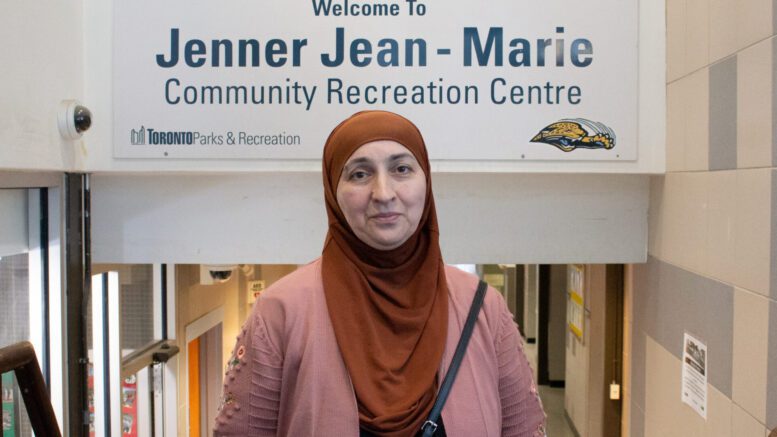On March 20, Deputy Mayor Jennifer McKelvie and community leaders recognized the Thorncliffe Park Autism Support Network (TPASN) as one of the 25 recipients of Toronto’s Community Champion Award for supporting its community during the COVID-19 pandemic.
As part of the Stronger TOgether initiative, the ceremony took place at the Toronto Reference Library, and the selection committee chose the winners based on “inclusive and innovative” approaches of serving vulnerable populations.
TPASN stood out more than 255 nominees across the city and formed part of two other awarded organizations in North York.
“We are very thankful to the city of Toronto and the community,” said Shaklo Sharipova, one of TPASN’s founders.
The City of Toronto “supports and endorses all kinds of groups that are doing good for communities and vulnerable sectors,” according to Eric Holmes, manager of community & social services for Toronto. McKelvie proclaimed April 2 as World Autism Awareness Day, and the Toronto sign was lit gold at Nathan Phillips Square.
Based in East York, TPASN is a non-profit, grassroots organization dedicated to spreading autism awareness and providing free programs and services that support families and children diagnosed with autism spectrum disorder and other disabilities.
According to Sharipova, TPASN activities should be free, accessible for all individuals in the community network, and inclusive to other non-neurodivergent children. Their events take place in the Jenner Jean-Marie Community Centre, R.V. Burgess Park, and in the Thorncliffe Park Public School upon request.
TPASN’s history
“For our son, we had to move,” Sharipova said about moving to Canada. In 2009, she and her family left their native Tajikistan to find opportunities for her son — who was then a nine-year-old with severe and non-verbal autism.
However, after they immigrated, Sharipova’s vocal stimming and hand twitching put off their neighbours. They avoided sharing common areas in their building and filed complaints with management about her son’s noises at night. “Every time they did it, it would hurt me,” Sharipova said.
After obtaining permission from her landlord, Sharipova put up a table at the building’s lobby with a poster explaining her son’s condition and talking about autism to other residents. Families approached her to share their experiences with autism in the community.
The effort became TPASN in 2018. It finally became a registered non-profit organization on Sept. 18, 2020.
To spread autism awareness, TPASN has reached out to local schools, agencies, and families to self-advocate for this disability. In regard to funding, TPASN has relied on grants such as the Student Summer Job Program or the Anti-Racism Action Program. The Flemingdon Health Centre, which receives funding from East Health Toronto Partners, has also supported TPASN’s mental health initiatives.
Besides that, TPASN mostly receives support from their community with their annual sale of baked goods for World Autism Month and a bike-a-thon around Thorncliffe Park. Yet, according to Zia Zarawar, a parent in the community, it’s still not enough.
‘I wish we had a government that really cares about families‘
The Ontario Autism Program (OAP) is a provincially funded program that aims to alleviate families’ expenses associated with the development and care for autistic children until the age of 18. However, long waitlists and poor communication with families have been a major point of criticism.
In 2018, the number of waitlisted children was 23,500. After five years and four ministers of Children, Community, and Social Services later, this number has exceeded 60,000.
“The government should be doing much better than this,” said Zarawar, a Thorncliffe Park resident and father of a nine-year-old with autism and cerebral palsy, who was approved once for $5,500 from the OAP.
Like many other parents, Zarawar and his son rely on this service due to the cost of autism therapies in the province. According to a report from the Ontario Association of Behaviour Analysis, the cost behavioural analyses and interventions for treating autism in children ranges from $26,000 to $130,000 on average per year.
“By the end of the day, you fill out all these applications … and once it’s approved, it’s not even enough for one program,” Zarawar said.
While TPASN provides guidance for applying to OAP, Sharipova said that the ministry should “make it fair.”
“The process is so complicated. I wish we had a government that really cares about families,” Sharipova said.

